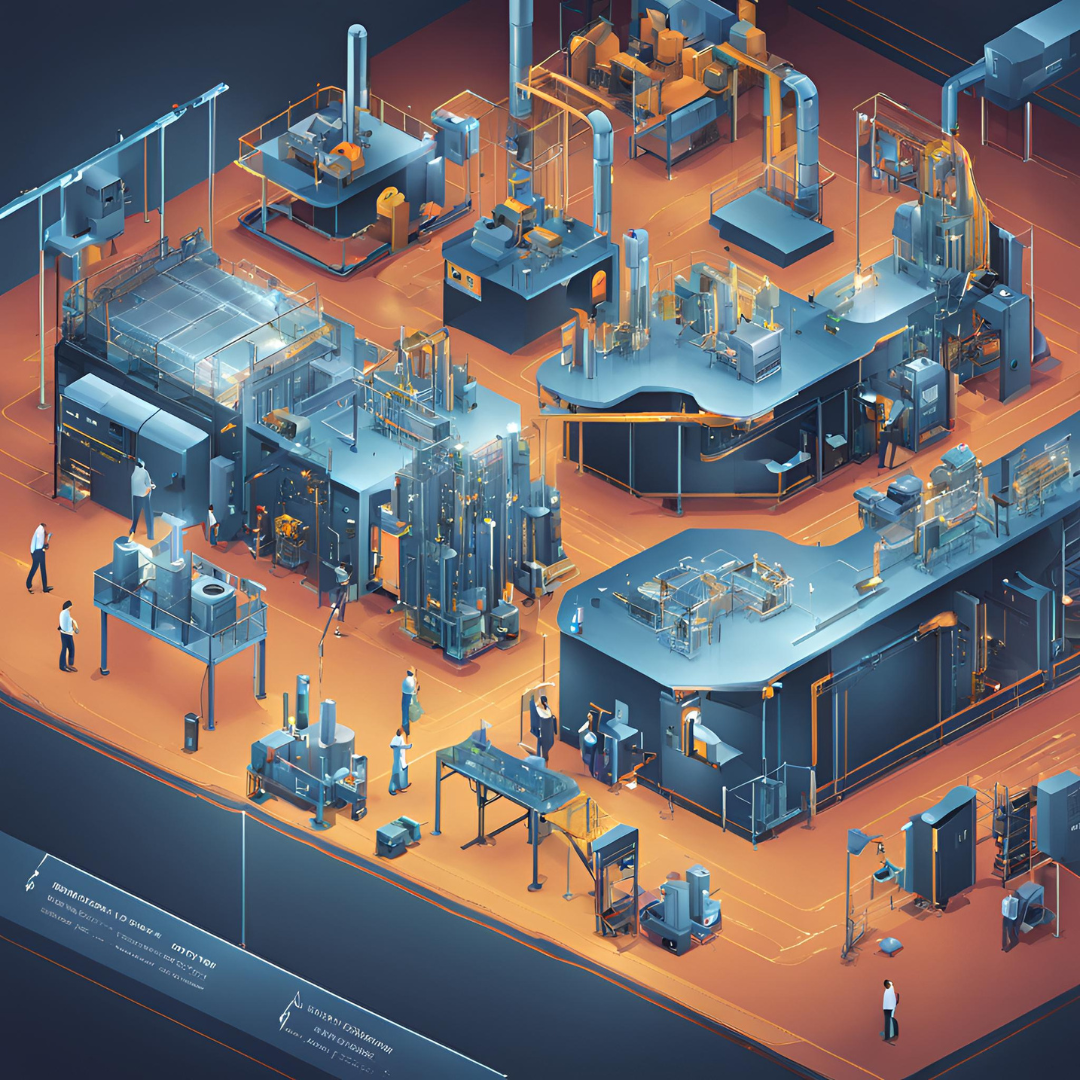As we advance into the digital age, the manufacturing industry stands on the brink of a revolution driven by smart factory solutions and Industry 4.0 technologies. This transformation is set to redefine how products are designed, produced, and delivered, heralding a new era of efficiency, customization, and sustainability.
What is Industry 4.0?
Industry 4.0 marks the fourth industrial revolution, defined by the incorporation of digital technologies into manufacturing processes. Unlike its predecessors, which focused on mechanization, electrification, and automation, Industry 4.0 emphasizes the use of smart technologies, connectivity, and data analytics to create more intelligent, interconnected production environments.
Core Technologies Driving the Revolution
- Internet of Things (IoT): IoT connects machines, sensors, and devices within the factory to collect and exchange data. This connectivity allows for real-time monitoring of equipment performance, predictive maintenance, and improved supply chain visibility. By analyzing data from IoT sensors, manufacturers can anticipate failures before they occur, reducing downtime and extending equipment lifespan.
- Artificial Intelligence (AI) and Machine Learning: AI and machine learning algorithms enhance decision-making by analyzing vast amounts of data to identify patterns, predict outcomes, and optimize processes. In manufacturing, AI can improve quality control, streamline supply chains, and enable adaptive production systems that adjust to changing demands.
- Robotics and Automation: Advanced robotics and automation systems are at the heart of smart factories. Modern robots are more versatile, capable of performing complex tasks with precision and efficiency. Collaborative robots (cobots) work alongside human operators, taking over repetitive or hazardous tasks while humans focus on more strategic activities.
- Big Data and Analytics: The vast amounts of data generated in smart factories are analyzed to gain insights into production processes, product quality, and operational efficiency. Big data analytics helps manufacturers make informed decisions, optimize resource allocation, and enhance overall performance.
- Cyber-Physical Systems (CPS): CPS integrates physical processes with digital systems, allowing for real-time monitoring and control. These systems enable seamless communication between machinery and human operators, facilitating more responsive and adaptive manufacturing processes.
- Additive Manufacturing (3D Printing): 3D printing technology enables the production of complex and customized parts with minimal waste. This technology is transforming prototyping and small-batch manufacturing, allowing for rapid iteration and on-demand production.
- Augmented Reality (AR) and Virtual Reality (VR): AR and VR technologies are enhancing training, maintenance, and design processes. AR provides real-time data and guidance to operators through wearable devices, while VR allows for immersive simulations and virtual prototyping.
***
According to a recent Deloitte study, 86% of surveyed manufacturing executives presume that smart factory solutions will be the primary drivers of competitiveness in the next five years. 1
***
Benefits of Smart Factories and Industry 4.0
- Increased Efficiency: Automation and real-time data analysis streamline production processes, reduce bottlenecks, and minimize downtime. Smart factories achieve higher levels of operational efficiency, leading to faster production cycles and reduced costs.
- Enhanced Flexibility: Industry 4.0 technologies enable manufacturers to adapt quickly to changing market demands and customize products on a large scale. This flexibility supports mass customization and personalized manufacturing.
- Improved Quality: Data-driven insights and advanced quality control systems lead to higher product quality and consistency. AI-powered inspection systems identify defects early in the production process, reducing waste and rework.
- Sustainability: Smart factories promote sustainable practices by optimizing energy use, reducing material waste, and enabling more efficient resource management. Additive manufacturing and efficient supply chains contribute to a lower environmental footprint.
- Better Decision-Making: Advanced analytics provide actionable insights that drive strategic decision-making. Manufacturers can leverage data to forecast trends, optimize supply chains, and improve overall operational performance.
- Enhanced Worker Safety: Automation and robotics reduce the need for humans to perform dangerous or repetitive tasks, improving workplace safety. AR and VR also offer innovative training solutions, preparing workers for complex scenarios in a controlled environment.
***
2023 Deloitte and MLC industrial metaverse study indicates that 23.92% of surveyed manufacturers are already experimenting with or implementing at least one metaverse-related use case, and on average, they are currently running more than six use cases.2
***
Challenges and Considerations
While the benefits of smart factories and Industry 4.0 are substantial, there are challenges to address:
- Integration and Interoperability: Implementing new technologies requires seamless integration with existing systems. Ensuring interoperability between different devices and platforms is crucial for realizing the full potential of Industry 4.0.
- Cybersecurity: As factories become more connected, the risk of cyberattacks increases. Robust cybersecurity measures are essential to protect sensitive data and maintain the integrity of manufacturing processes.
- Workforce Skills: The shift to smart manufacturing requires a skilled workforce capable of operating and maintaining advanced technologies. Investment in training and reskilling programs is necessary to address skill gaps and prepare workers for new roles.
- Cost and Investment: The initial investment in Industry 4.0 technologies can be significant. Manufacturers must evaluate the return on investment and develop strategies for phased implementation to manage costs effectively.
Conclusion
The future of manufacturing is being reshaped by smart factory solutions and Industry 4.0 technologies, offering unprecedented opportunities for efficiency, customization, and sustainability. As manufacturers embrace these innovations, they will unlock new levels of performance and competitiveness, paving the way for a more intelligent and connected industrial landscape. While challenges remain, the potential benefits make a compelling case for investing in the future of manufacturing.
Endnotes:
- Deloitte’s Research Center for Energy & Industrials group, “2019 Deloitte and MAPI smart factory study”.
- Wellener, Coykendall, Hardin, Morehouse, and Brousell, “Exploring the industrial metaverse”.

